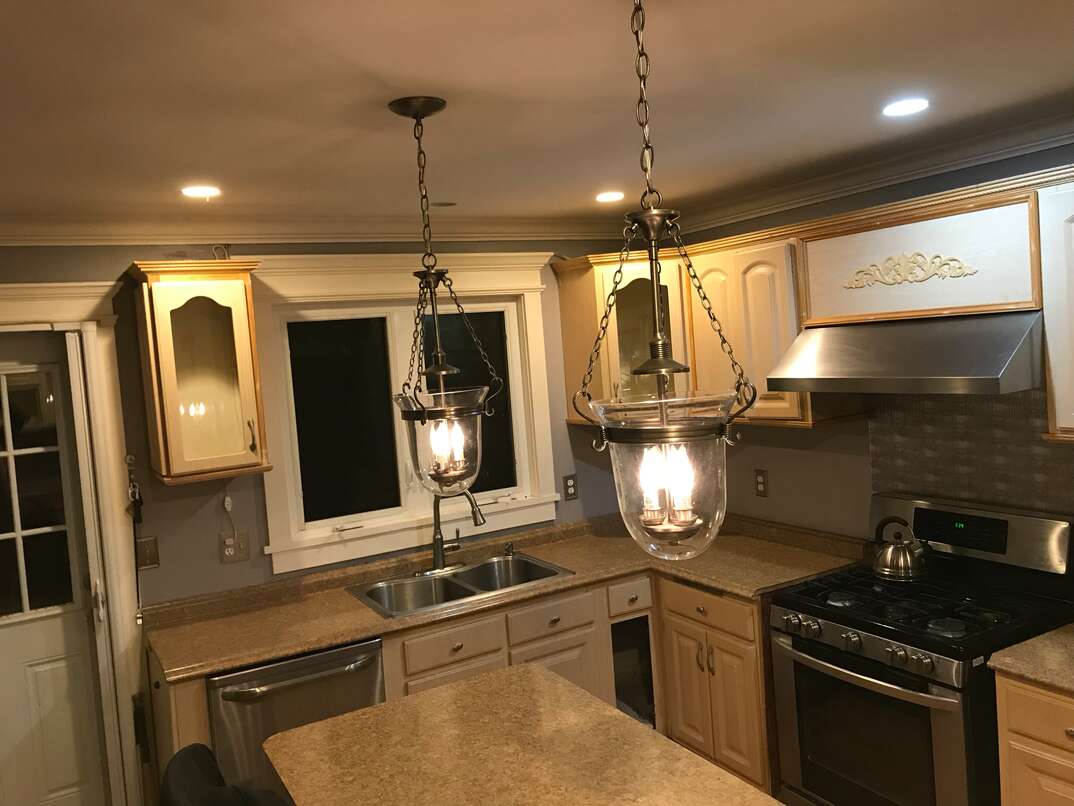- AppliancesElectriciansHVACLandscapingLocksmithPest ControlPlumbingRenovationRoofingT V RepairAll Home Improvement
- Car AccidentClass ActionCorporate LawCriminal DefenseDivorce LawEmployment LawFamily LawFinancial LawLegal AidMedical Injury LawyersMedical MalpracticeReal Estate LawWater Fire RestorationAll Legal
- InvestmentRetirementAll Finance
- Animal InsuranceAutoGeneral InsuranceHealth PolicyHome RentersAll Insurance
- DentalHealth SpecialistsAll Medical
- Animal CareVeterinaryAll Pets
- Auto GlassTowingAll Automotive
Why Are My Lights Making a Buzzing Noise?

Buzz ... buzz ... buzz ... nothing can interrupt your thoughts and disturb your sleep quite like a light buzzing, but many people eventually learn to block out the noise. However, a buzzing light fixture is never something to ignore. While the sound could simply mean you need a new lightbulb, it could also be the first warning of a potential electrical hazard.
Fortunately, you can often fix the issue and restore peace with some simple DIY tips and tricks.
A buzzing light fixture can be annoying, and there are several potential causes. While some reasons for a light buzzing are harmless, it's essential to get to the bottom of the sound — for your sanity and to rule out a potentially dangerous electrical issue.
The most common causes of light buzzing include:
- A worn-out or faulty lightbulb
- A faulty ballast, which controls the light's voltage
- Using a dimmer switch to alter the voltage, causing vibrating bulb filaments
- An electrical short circuit
- Loose fixtures
- Using the incorrect bulb type or wattage
Often, you can fix a buzzing light fixture by replacing the bulb. Ensure your new bulb is the correct wattage for your fixture and is dimmer-switch-compatible if you use a dimmer switch. Swapping incandescent or CFL lightbulbs for LED bulbs can be helpful because LED bulbs are significantly less likely to buzz or hum.
Why Do Fluorescent Lights Hum?
Fluorescent lights are famous for making a humming noise as the ballast regulates the current passing through the tube. While a gentle humming noise is normal, you shouldn't ignore a louder buzz.
A buzzing fluorescent light is usually caused by a loose tube or worn-out ballast. You can diagnose the problem by replacing the plastic housing on the light fixture and tightening or replacing the tubes. If this doesn't work, turn off the electricity supply to the fixture, remove the tubes and inspect the condition of the ballast.
You can sometimes order a replacement ballast for a fluorescent light fixture. If not, you'll need to replace the entire light to resolve the buzzing noise.
Buzzing lights can sometimes signify a more serious problem with your home's electrical system. When a short circuit occurs, your system may make a low buzzing or humming sound. A loose wire can also buzz when you turn the affected fixture on. Both issues can lead to electrical fires if left unchecked.
It's always worth hiring a professional electrician if your lights buzz persistently and changing the bulbs doesn't solve the problem. Your electrician can find and repair the fault to stop the noise and improve the safety of your electrical system.
Dimmer switches increase the chances of a buzzing light. While the noise doesn't necessarily indicate a dangerous fault, it's a good idea to call an electrician to ensure your system is safe. In some cases, your electrician may recommend changing the switch or bulb type to remedy the issue.
More Related Articles:
- How Do I Tell If an Electrical Issue Is Serious?
- Can One Bad Outlet Affect Others?
- How to Reset a GFCI Outlet
- What’s in My Electrician’s Van?
- 7 Ways to Save on Your Electric Bill
Are Buzzing LED Lights Dangerous?
LED bulbs don't usually contain parts that can buzz, so the sound likely signifies a worn-out bulb or a mismatch between the dimmer wattage and your lightbulb. Neither of these issues is dangerous, but that doesn't stop the sound from being irritating.
You can determine whether a mismatch is the problem by connecting your fixture to a regular switch. The process can be complicated for a hardwired fixture, so it's often safer to hire an electrician to run the check for you. If the light stops humming when you use a regular switch, you may need to remove the existing dimmer switch and install an LED-compatible model.
If the sound persists even after replacing the bulb or using a different switch, you could have a dangerous electrical fault on your hands. Issues like short circuits and loose connections require attention from a professional electrician.
Elocal Editorial Content is for educational and entertainment purposes only. Editorial Content should not be used as a substitute for advice from a licensed professional in your state reviewing your issue. Systems, equipment, issues and circumstances vary. Follow the manufacturer's safety precautions. The opinions, beliefs and viewpoints expressed by the eLocal Editorial Team and other third-party content providers do not necessarily reflect the opinions, beliefs and viewpoints of eLocal or its affiliate companies. Use of the Blog is subject to the
Website Terms and Conditions.The eLocal Editorial Team operates independently of eLocal USA's marketing and sales decisions.



